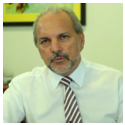 It is customary at this time of year for most risk professionals to step back and take a broader look at the risk landscape ahead for the coming year. The normal starting point is the “think-tank” assessments of Global Risks such as Zurich Risk Landscape 2007-2015 and the WEF’s 2015 Global Risk Report. And Global Warming is at the top of most experts’ lists.
It is customary at this time of year for most risk professionals to step back and take a broader look at the risk landscape ahead for the coming year. The normal starting point is the “think-tank” assessments of Global Risks such as Zurich Risk Landscape 2007-2015 and the WEF’s 2015 Global Risk Report. And Global Warming is at the top of most experts’ lists.
I have never been a fan of Darwin’s Theory of Evolution. Apart from its incompatibility with the 2nd Law of Thermodynamics (things move towards disorder not improve), there is also the statistical improbability of simultaneous hybrid/mutation of a species occurring at the same time, geographical location, fertility, and age to be able to breed, not counting there is more practical evidence of the extinction of species, than development of new ones. This does not make me an adherent of the Theory of “Intelligent Design” which is neither a theory nor intelligent. I just feel the success of Evolution has more to do with being “popular” than fact. I see the same with Global Warming.
I do not deny Global Warming is occurring (0.69 ⁰ in 2014), but the claims of it causing extreme weather patterns cannot be statistically supported. Measurement of systemic change is metered in the change at limits and if heatwaves and snow storms were indicative then a) the variation would be far greater than 0.69 ⁰ and b) the variation would be distributed binomially. So why are environmental “scientists”, who should know better, making false claims? To coin Steven Schwarz from Wicked, they want to be Pop-u-lar.
As I covered last year in “Does anyone really understand Emerging Risks?”, the over focus on emerging risks (possible maybes) is detracting from realistic assessment of business risk. After events in Paris I personally believe ISIS/terrorism is the major global threat as it demonstrated a new level of “professionalism” in terrorism. But how is that likely to affect businesses?
Tourism will decrease but Defence spending will increase. Global warming will have little additional effect to 2015 objectives not yet factored in. Petro dollars and emerging markets will suffer but that should aid the touchy Euro. To highlight how pointless popular views are, the 2013 WEF Global Risks Report included the Discovery of Alien Life! True, check it out.
I feel risk managers need to be looking at current events with likely effects on their business. The Market volatility expected in 2015 will invariably lead to boards changing strategic directions. Providing decision making support to the board is a good way of demonstrating the value adding of ISO 31000. 2015, if anything, is going to be an uncertain time. This should be grist to the mill for risk management and ISO 31000’s time to shine.
Extending on possible threats, consider the current ‘events’ that will most likely affect most business:
- Cyber Attacks: already should be the number 1 business threat, is still much underrated in most business, and I believe it will explode in 2015 with attacks moving onto mainstream businesses;
- Market Volatility: in currencies and economic metrics as well as the stock market, with boards moving to shore up share prices and returns instead of pursuing growth strategies;
- Social Networking: is a snowball with still a long way to go. Not only as a reputational risk but becoming the norm in mainstream customer service and marketing. The are some specialist companies offering impressive systems exploiting it (go Gen-Ys), such as Gleam, that will accelerate the move;
- Cloud Computing: has been hampered to date by concerns over security and data sovereignty – which will only increase in these uncertain times. Predominantly used currently for non-critical applications/data, hybrid cloud (data stored on premise) and cyber security SaaS offerings could tip cloud into line-of-business application. This would change internal processes dramatically.
All these should be known risks in most risk inventories. The trick in 2015 is to get ahead of the curve by developing alternative scenario analyses for their unfolding and then getting these in front of the board and executive. Then we could have a positive risk for 2015 of ISO 31000 becoming a mainstream management tool.
Bio:
Greg Carroll - Founder & Technical Director, Fast Track Australia Pty Ltd. Greg Carroll has 30 years’ experience addressing risk management systems in life-and-death environments like the Australian Department of Defence and the Victorian Infectious Diseases Laboratories among others. He has also worked for decades with top tier multinationals like Motorola, Fosters and Serco.
In 1981 he founded Fast Track (www.fasttrack365.com) which specialises in regulatory compliance and enterprise risk management for medium and large organisations. The company deploys enterprise-wide solutions for Quality, Risk, Environmental, OHS, Supplier, and Innovation Management.
Mastering 21st Century Risk Management” which will be available from the www.fasttrack365.com website in a couple of weeks. Meanwhile a recent Webinar on the topic can be seen at http://www.youtube.com/watch?v=nQoJj6FBxrY&feature=youtu.be in which we show how emerging best practices provide a good picture for how enterprise risk management should look in the 21st century.